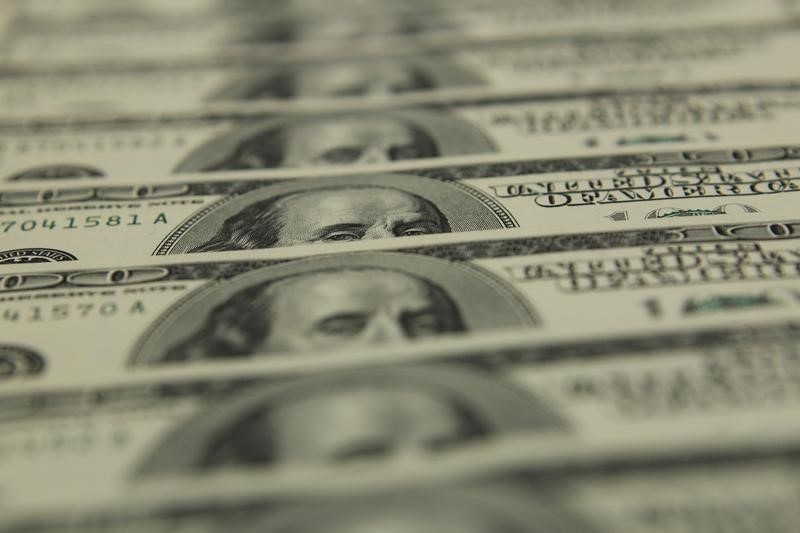Investing.com - The dollar remained broadly lower against the other major currencies on Tuesday, as investors turned their attention to upcoming central bank meetings amid growing expectations for additional stimulus measures.
GBP/USD rallied 1.31% to 1.3162, pulling back from the post-Brexit 31-year low of 1.2794 set last Wednesday.
The pound strengthened as Theresa May emerged to succeed Prime Minister David Cameron, removing some of the political uncertainty that has hit the currency in the wake of the Brexit vote.
But the outlook for the pound remained clouded amid mounting expectations for a rate cut from the Bank of England at the conclusion of its policy meeting on Thursday.
BoE Governor Mark Carney said on Tuesday that a negative consequences from the Brexit vote on the U.K. economy could prompt the central bank to act, signaling that more stimulus is on the way.
USD/JPY advanced 1.07% to 103.89, the highest since June 24, while USD/CHF held steady at 0.9828.
The yen came under pressure after Japanese Prime Minister Shinzo Abe’s ruling coalition increased its majority in the upper house in parliamentary elections on Sunday.
The win for Abe’s coalition fed hopes for a fresh package of stimulus measures to spur economic growth.
EUR/USD gained 0.37% to 1.1098.
The Australian and New Zealand dollars were sharply higher, with AUD/USD up 1.30% at 0.7632 and with NZD/USD advancing 1.19% to 0.7305.
The National Australia Bank said its business confidence index rose to 6 in June from a reading of 3 the previous month.
Elsewhere, USD/CAD dropped 0.71% to trade at 1.3025, the highest since June 28.
Commodity currencies were also boosted as oil prices moved higher on Tuesday after the Organization of the Petroleum Exporting Countries said global demand for its crude production would rise in 2017 and that excess oil inventories would diminish.
The U.S. dollar index, which measures the greenback’s strength against a trade-weighted basket of six major currencies, was down 0.33% at 96.26.
